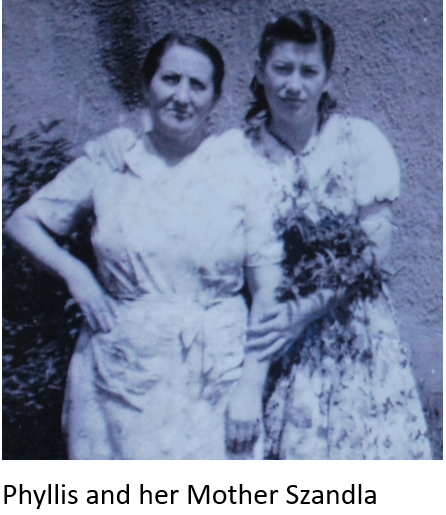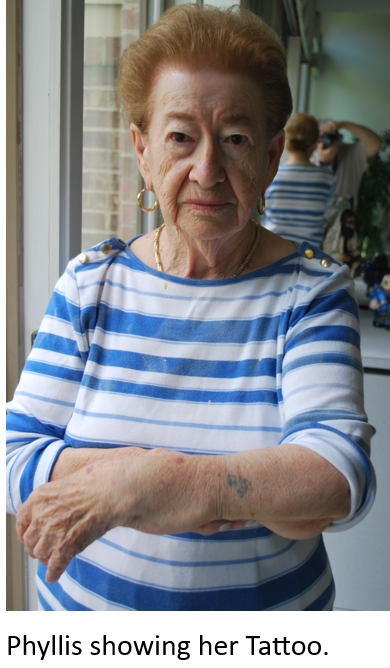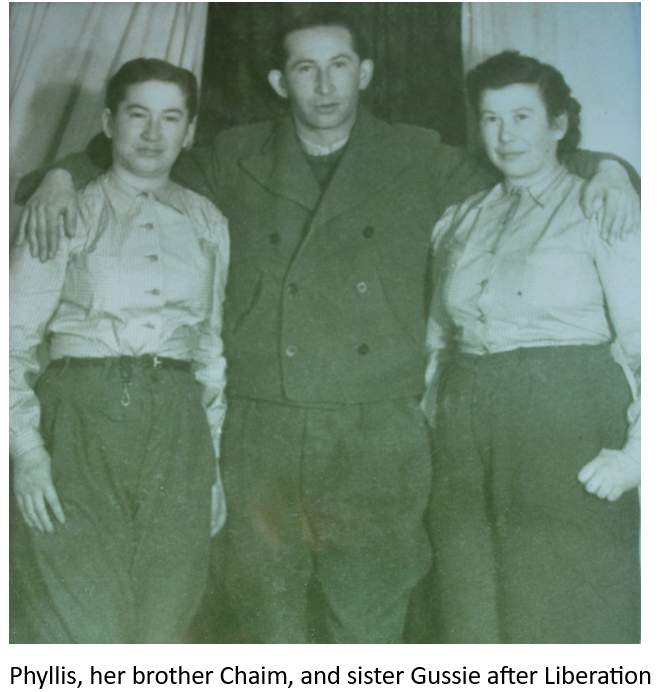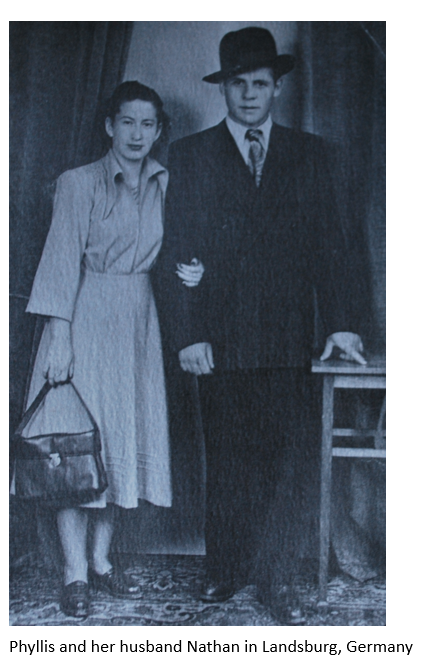Phyllis Potach
"There was a Holocaust and six million Jews were killed. We're still fighting in Israel to have our own land."
Name at birth
Fajgla (Faigele) Altman
Date of birth
04/10/1930
Where were you born?
Where did you grow up?
Pilica, Poland near Sosnowiec
Name of father, occupation
Abram Altman,
too young to remember My father was killed in Sosnowiec
Maiden name of mother, occupation
Szandla (Shaindel) Cieszyska,
Had a food stand
Immediate family (names, birth order)
Parents and five children: Chaim, Joe, Gussie, Rosa, and Faigela (me)
How many in entire extended family?
Large extended family
Who survived the Holocaust?
In my immediate family, everyone survived except my father
I grew up in a happy family. I loved my brothers and sisters very much.
The Germans came and we escaped to the forest. We came back but the Jews in our town were already gone. We went to another city but they caught us on the border of Sosnowiec and Bedzin. In 1943, my family was taken to Auschwitz from Sosnowiec.
There was a Selection when we arrived at Auschwitz-Birkenau; Mengele selected who should live and who should die. We were chosen to live, to go to work. I was thirteen years old, my mother instructed me to act like I was older.
They put us in a big room, they took our clothes, they shaved our heads, and gave us tattoos. The tattoo hurt, but you had to keep quiet. I have a number with a half triangle below it to signify a Star of David. We didn’t get much food. My mother and I worked in an ammunition factory at Auschwitz.
Two girls were caught smuggling out ammunition from Auschwitz. They were hung in front of all of us at the Appel, the roll call.
I befriended a German girl named Erica. I told her my sister Gussie was working outdoors and asked if it was possible to bring her to work in the night shift of the ammunitions factory. My mother and I worked there in the daytime. She did it, arranged for Gussie to work there. We would pass Gussie during the time shifts would change.
If not for my mother, I wouldn’t have survived. My mother took risks for me getting food for me to eat.
When the Allies were advancing, we were taken from one concentration camp to another. I was liberated 150 kilometers from Berlin. On the Death March, we had to walk five in a row. If you couldn’t walk, they would shoot you. We had no food; a lot of people threw themselves on electric wires to kill themselves. We went through Hell.
When I was liberated, my mother said we had to stay quiet because the Germans would be angry because they lost the war and might kill us. We were liberated by the American army. The Russian army followed later. The Russian army raped some girls during liberation. Some Russian soldiers came into the room where my mother, sister, and I were staying. My mother hid us and said she herself was very sick. They left.
The Red Cross came and said, “You are liberated! You can go wherever you want!” My mother, my sister Gussie and I were on our way to Warsaw.
They threw my sister off the train for making comments against the Polish people. We waited hours and hours for her at the train station in Warsaw. Finally, she arrived in Warsaw.
Name of Ghetto(s)
Name of Concentration / Labor Camp(s)
Where were you in hiding?
In a forest in the beginning of the war
What DP Camp were you after the war?
Landsburg, Germany We were all reunited after the war. When we learned that my father died, Chaim, my older brother, became like the father figure. We thought of moving to Israel but my mother said she had had enough of war.
Where did you go after being liberated?
We went to Warsaw. We wanted to go home. My sister Rosa went back to Pilica but was told that no one had come back, that everyone was dead. My brother and sister reunited in Germany.
When did you come to the United States?
We wanted to go to Denver because my brother moved there with his wife and two kids, but the Jewish agency sent us to New Orleans. I had met a man in the DP camp who had moved to Detroit. He was waiting for me to move to Detroit.
Where did you settle?
New Orleans, then Denver, then Detroit
How is it that you came to Michigan?
The man I married lived in Detroit
Occupation after the war
Homemaker
When and where were you married?
Detroit, Michigan
Spouse
Nathan Potach,
Built houses after war
Children
Harry, Morris, Paul (physician) lives in Chicago.
What do you think helped you to survive?
Without my mother and sister, I would not have survived. They took care of me. My mother made me older so I would survive the Selection at Auschwitz-Birkenau.
What message would you like to leave for future generations?
There was a Holocaust and six million Jews were killed. We're still fighting in Israel to have our own land.
Interviewer:
Charles Silow
Interview place:
West Bloomfield. Michigan
Interview date:
07/24/2013
Experiences
Survivor's map




